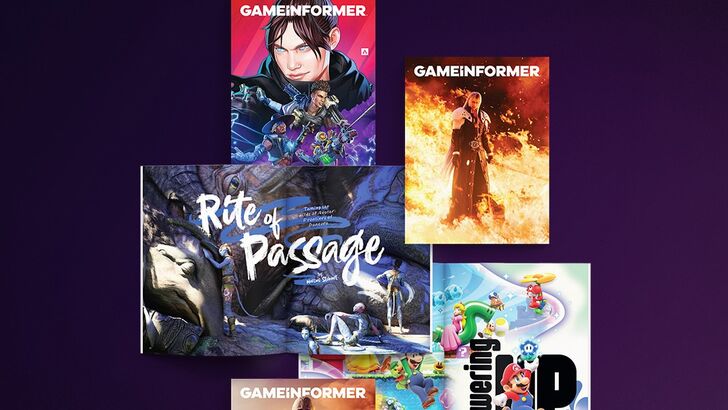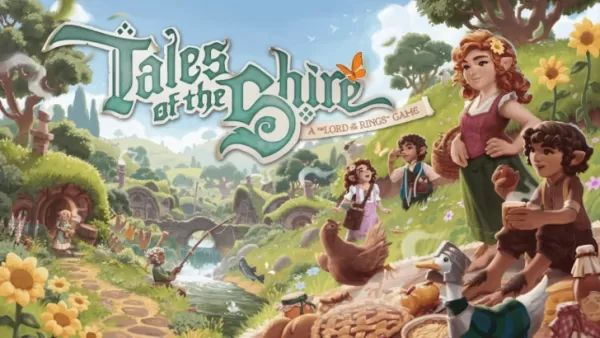 Gaming journalism suffered a significant blow with GameStop's abrupt closure of Game Informer, a publication that served as a pillar of the industry for 33 years. This article details the announcement, explores Game Informer's history, and reflects on the shocked reactions of its staff.
Gaming journalism suffered a significant blow with GameStop's abrupt closure of Game Informer, a publication that served as a pillar of the industry for 33 years. This article details the announcement, explores Game Informer's history, and reflects on the shocked reactions of its staff.
Game Informer's Final Chapter
The Closure and GameStop's Decision
On August 2nd, Game Informer's Twitter (X) account announced the immediate cessation of both its print and online operations. This unexpected news stunned fans and industry veterans alike, ending a 33-year run. The announcement acknowledged the magazine's long journey, from the early days of pixelated games to today's immersive digital worlds, and thanked its loyal readership. While the magazine's print run has concluded, the spirit of gaming that defined Game Informer will endure.
The magazine's staff, which also produced a website, podcast, and online video documentaries, received the news of their immediate layoff in a Friday meeting with GameStop's VP of HR. Issue #367, featuring a Dragon Age: The Veilguard cover story, will be its last. The entire website has been removed, replaced by a farewell message, effectively erasing decades of gaming history from the internet.
Game Informer's Legacy
 Game Informer (GI) was a prominent American monthly video game magazine offering articles, news, strategy guides, and game reviews. Its origins trace back to August 1991, as an in-house newsletter for the video game retailer FuncoLand. GameStop acquired the magazine following its 2000 purchase of FuncoLand.
Game Informer (GI) was a prominent American monthly video game magazine offering articles, news, strategy guides, and game reviews. Its origins trace back to August 1991, as an in-house newsletter for the video game retailer FuncoLand. GameStop acquired the magazine following its 2000 purchase of FuncoLand.
Game Informer Online debuted in August 1996, providing daily news and articles. The original site was later closed around January 2001 with the GameStop acquisition. A revamped GI Online launched in September 2003, featuring a redesigned interface, a review database, frequent news updates, and premium subscriber content.
 A major online redesign occurred in October 2009, coinciding with a redesign of the print magazine. New features included an updated media player, user activity feeds, and user review capabilities. The popular podcast, "The Game Informer Show," also premiered at this time.
A major online redesign occurred in October 2009, coinciding with a redesign of the print magazine. New features included an updated media player, user activity feeds, and user review capabilities. The popular podcast, "The Game Informer Show," also premiered at this time.
In recent years, GameStop's struggles following the decline of physical game sales negatively impacted Game Informer. Despite a surge in its stock price, GameStop implemented job cuts across its operations, including repeated layoffs at Game Informer. After removing physical Game Informer issues from its rewards program, GameStop recently allowed the magazine to sell directly to subscribers, hinting at a potential sale or spin-off – a possibility now rendered moot.
Employee Reactions and the Digital Void
The sudden closure has left Game Informer's staff devastated and shocked. Social media posts express disbelief and sorrow at the abrupt end of their employment and the magazine's legacy. Former employees, some with decades of service, shared memories and frustration over the lack of notice.
Konami's official X account expressed gratitude for Game Informer's contribution to the video game industry. Former staff members, including content director Kyle Hilliard and former staffer Liana Ruppert, shared their disappointment and concern for their colleagues. Andy McNamara, a former editor-in-chief with a 29-year tenure, expressed his heartbreak at the magazine's demise.
 Journalist Jason Schreier noted the uncanny similarity between GameStop's farewell message and one generated by ChatGPT, highlighting the impersonal nature of the closure.
Journalist Jason Schreier noted the uncanny similarity between GameStop's farewell message and one generated by ChatGPT, highlighting the impersonal nature of the closure.
 Game Informer's closure marks the end of an era in gaming journalism. For 33 years, it was a vital part of the gaming community, offering in-depth coverage and insightful perspectives. Its sudden demise underscores the challenges facing traditional media in the digital landscape. While the publication is gone, its legacy and the countless stories it shared will continue to be remembered.
Game Informer's closure marks the end of an era in gaming journalism. For 33 years, it was a vital part of the gaming community, offering in-depth coverage and insightful perspectives. Its sudden demise underscores the challenges facing traditional media in the digital landscape. While the publication is gone, its legacy and the countless stories it shared will continue to be remembered.















